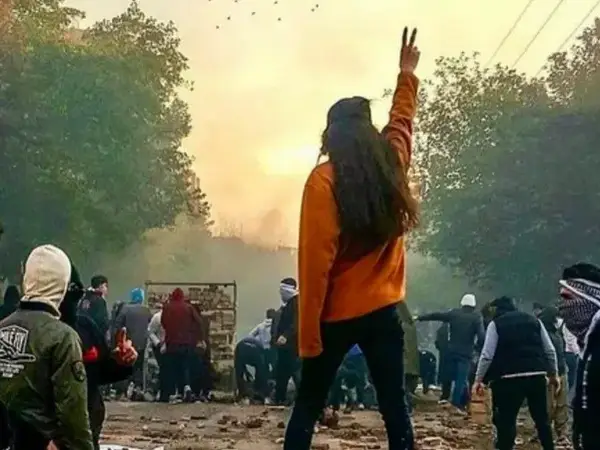A leaked audio file from a meeting of Iranian regime insiders indicates that at least 80 people detained during nationwide protests are in danger of execution.
The recording is from a recent meeting of the Coalition Council of Islamic Revolution Forces, a conservative coalition of parties that endorsed a joint electoral list for the 2020 Iranian parliament and city council election.
The parliament, elected in a non-competitive election in February 2020, is packed with hardliners and Revolutionary Guard officers, most of whom, including its speaker Mohammad-Bagher Ghalibaf, are members of this coalition.
During the session, Gholam-Ali Haddad-Adel, the head of the coalition and a hardliner politician very close to Supreme Leader Ali Khamenei, asks the secretary, Reza Davari, to brief members about recent developments in the country. In his report, Davari said 80 people have been charged with "Moharebeh" and "corruption on earth.” Mohareb (muharib), which means warrior in Arabic is a term in Iran’s Islamic law that means an "enemy of God” or “war against God,” which carries the death penalty. “Corruption on earth” is also another term that carries the death penalty.
He said that Khamenei preferred the detained protesters be executed based on the principle of "qisas" -- or punishment in kind, which in the Islamic criminal code can be applicable in cases of bodily harm – for killing of Basij paramilitary forces. The regime has on many occasions used the Quranic principle -- similar to “an eye for an eye” or the law of talion – to execute protesters after charging them with killing security agents.
Davari added that if the authorities wanted to execute the protesters based on qisas, they could only issue death sentences for about 10 people, therefore they decided to charge the protesters with “moharebeh” and “corruption on earth” that ensure the execution of more prisoners. He noted that the largest number of such indictments were issued in the provinces of Tehran, Alborz, Fars, Khorasan Razavi and Esfahan.
Any act of defiance can be arbitrarily interpreted as ‘war against god’ in a judicial system that ignores due process and is controlled by the authoritarian ruler Khamenei.
According to recent reports, at least 10 underage protesters are also facing death sentences for the “moharebeh” and “corruption on earth”. During the popular uprising in Iran, over 18,000 citizens have been arrested and it is not clear how many of them were accused of “corruption on earth” and “war against God”.
Davari went on to say that for some of the protesters arrested in Kurdish-majority cities “terrorism” charges were issued so that they could be sentenced to death.
In November, a group of 227 parliament members called on the Judiciary to issue death sentences for people arrested during the ongoing antigovernment protests.
Among other things that were discussed during the session, records of which Iran International obtained, was the brutal crackdown on protesters in Zahedan, the provincial capital of Sistan-Baluchestan, known as the Bloody Friday. It took place September 30, when security forces killed close to 100 people, including women and children. The Islamic Republic never acknowledged the killings of ordinary people and always claimed that security forces only opened fire at those who wanted to attack a police station in the city. However, in the leaked audio, Davari admitted that one of the officers who was stationed on the roof of the police building “made a grave mistake and shot at people” who were not even near the police station, killing some men, women, and children who were not even protesting.
Repeated leaks by hackers and insiders in recent days has unmasked the inner thinking and unpleasant secrets of the Islamic Republic, putting the regime in an uncomfortable situation.
